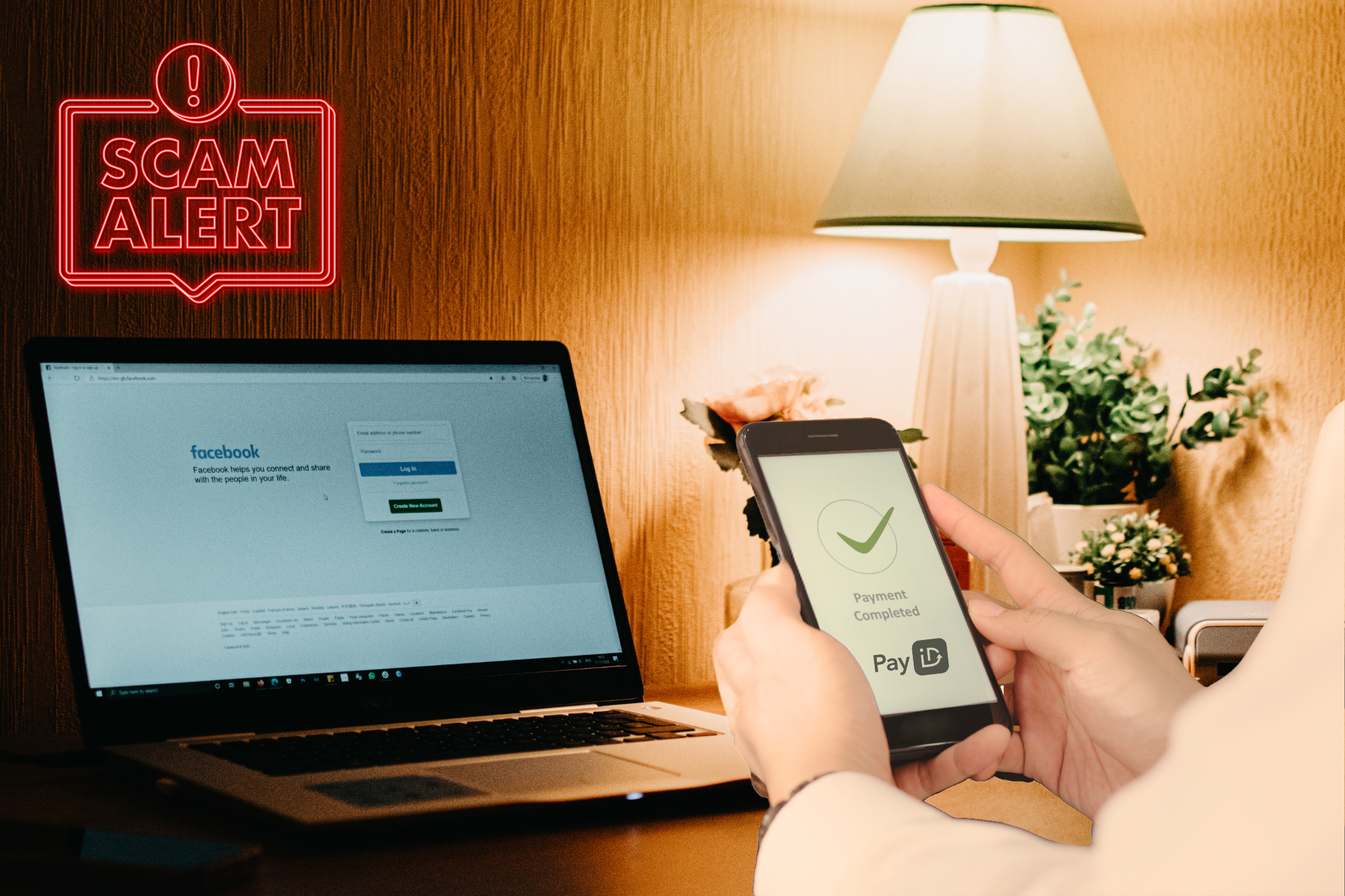
Beware the PayID scam marketplace
Last updated on July 9th, 2024
As the cost of living bites in homes across the country, many Australians are turning to Facebook Marketplace to raise a bit of extra cash. But be warned: it has also become the PayID scam marketplace.
What was initially a selling point for security – that each listing is attached to a Facebook account – has become one of the platform’s biggest issues.

Analyst Ryan Hansen from IDCARE, a national service helping victims of cyber crime, told the ABC more than 90 percent of complaints about online scams were via the platform. Only four years ago, those complaints were evenly split between Facebook, Gumtree and eBay.
According to IDCARE, most buyer scams involved the purchase of a vehicle. So how are scammers using Facebook Marketplace to defraud you?
Tactics to reel you in
Many people looking to sell items through online classifieds opted for Facebook Marketplace over Gumtree or other platforms because it was linked to a person’s Facebook account.
However, scammers soon cottoned onto this and began creating fake Facebook accounts or hacking someone else’s profile so they could target people with PayID.
The scammer then pretends to be interested in buying your item. They might claim there is a minimum amount they can pay because their PayID is connected to a business and ask to overpay you on the condition you immediately send the difference back.
Or they might say that they can only pay via PayID and encourage you to set it up if you don’t have one. Because they are attached to a Facebook account with a history, you might feel comfortable doing so even though this request should be considered a red flag. Here are some real-life examples that show how easily you can be fleeced and why Facebook has become the PayID scam marketplace.
Offering to pay more to ‘upgrade’
These Facebook Marketplace fakes can look very real. Peter Gaal thought the woman who wanted to buy his car was legitimate because she was “an old lady” attached to a Facebook profile that had been active for several years. She offered to transfer the $5500 immediately via PayID and sent him a screenshot of the payment.

Then he received an email from PayID that looked legitimate saying the payment came from a business account and the payment threshold was $6000 and above. The buyer offered to pay Gaal the extra $500 if he promised to return it straight away. She sent him a screenshot purporting to show the payment and he immediately refunded it. Then he was blocked. And his money was gone.
Putting you under pressure
Paris Fiedler had a similar experience with PayID scammers when she tried to sell a few things online. She was inundated with messages, insisting that they wanted the items urgently and they would use PayID to speed up the process.
Though she did not hand over any money, the scammers were so insistent that they had sent her money via PayID and she owed them a refund, she did start to question herself. “I was feeling very bad ... they were saying ‘Now I’m not going to have any money; I’ve sent it all to you’. They were very convincing,” she said.
Making you feel connected
According to IDCARE’s data, women accounted for just over half of those that reported Marketplace scams, with people aged between 25 and 44 the most affected. And the very nature of the platform makes it easier to draw people in.
"Facebook really illicits trust between buyer and seller – you're immediately going ‘this is a real person’,” Mr Hansen said.
Stay abreast of PayID marketplace scams
Facebook maintains it invests a lot in both automated systems and human reviewers to protect users and prevent fraud, but a report by American not-for-profit ProPublica found Marketplace scams were rampant. And as fast as one scam is shut down, several more start up.
It’s more important than ever to remain vigilant and take steps to verify someone’s identity before transferring money anywhere. Arm yourself with information about common PayID scam tactics and report any suspicious activity to Scamwatch.
If you have an issue with PayID and can’t get a satisfactory response, lodge a complaint with us and we’ll help you handle it.






